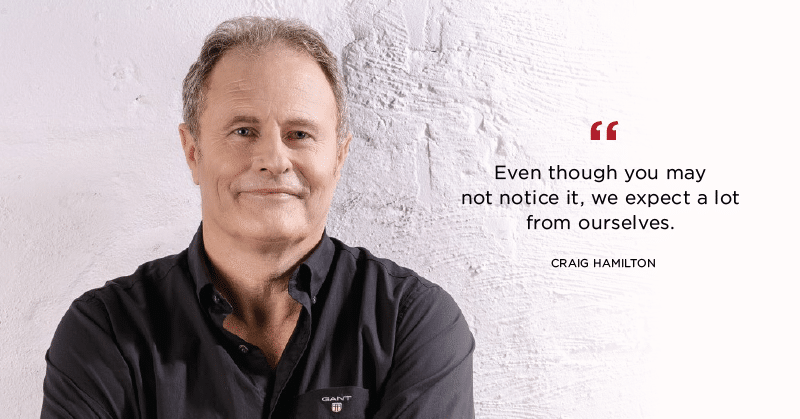The Impact of Covid on our Mental Health | Craig Hamilton | Mental Health Speaker

2020 has been an extraordinary year so far. The Coronavirus has changed the world and therefore had a significant impact on everyone on the planet. Even if we haven’t contracted the virus and don’t know anyone who has, the way we live and our day to day lives have changed.
Covid-19 has created fear, uncertainty, and a loss of control in many aspects of our daily lives. It’s also affected home life. These factors alone can lead to worry, stress, anxiety, and in some cases depression.
We learnt early in the process that without a vaccine, managing the virus came down to three key things: we need to wash our hands regularly, keep a physical distance of at least 1.5 metres from others and, in some cases, physically isolate. Other than following these measures, most of us have felt powerless to do anything.
Human beings like to be in control. One of the areas I found I could control, which made an enormous difference to my wellbeing through the early days, was how much media I consumed daily.
I work in the media, so ignoring the situation was impossible. Media reports are available 24hrs a day, 7 days a week and, particularly on the TV News channels, there has been constant coverage. I felt that I was experiencing news overload.
Many people I know became more stressed, more worried, and more anxious because of the constant messaging they were absorbing every day. At the height of the pandemic I chose to watch television coverage in the morning, switch off and then on again at night. I needed to know what was important to me and to my family and leave it there. What I couldn’t control I left alone, and that was a conscious choice.
While all this has been going on, work, family, home-schooling, bills, other illnesses, elderly parents to care for, childcare and core relationships still have to be managed. Even though you may not notice it, we expect a lot from ourselves.
One of the character traits that we can have is perfectionism. Striving to be perfect is not helpful at the best of times, but right now is certainly not the time to try. Even Pre-Covid, perfection isn’t healthy. Perfectionists spend three quarters of their day trying to be perfect and the other quarter beating themselves up when they’re not. That’s an insight coming from a reformed perfectionist. Perfectionism is a one-way ticket to disappointment.
I know, from my own experience, that to fight constantly with life leaves you exhausted, anxious and stressed. As much as we all love to be in control, there is so much more in life that we are not able to take control of. Accepting this can reduce stress immediately.
So, for what it’s worth, here’s what I’ve done in the past six months to minimise the bumps and bruises of 2020:
Hydrate Better: Most of us are dehydrated. Even though we feel like we don’t need to drink any more water, our bodies need a minimum of 1500mm a day.
Eat Better: I find it’s helpful to eat more unprocessed foods. When we are stressed we tend to eat more sugar, salt, fats and consume more alcohol.
Sleep Better: sleep pattern is very important. The impact of disrupted sleep affects your mood, it affects the ability for your body to recover, it can affect your cognitive function and concentration levels. Lack of sleep slows down recovery time for injury and illness.
Enjoy Nature: nature is underestimated as a way of managing stress and anxiety. Get outside, if you can, and get some sunshine, natural vitamin D, and exercise. It doesn’t have to be high intensity; just walking around the block is better than nothing. Walk along the beach, around town, wherever. Fresh air is fantastic.
Have fun: Play music, dance, embarrass your children, read an inspiring, uplifting book, watch a TV series or documentary that you hadn’t had time to watch pre-Covid.
Talk more: talk to someone if you are overwhelmed. It does help and it is important. It could be a friend, your partner, a work colleague, a counsellor, your GP, or a psychologist. Don’t be embarrassed, it’s our wellbeing we’re talking about here.
Look out for others: If you see a change in a family member or a friend or a work colleague, don’t be afraid to ask them if they are going okay.
Here are some further lessons I’ve practiced during Covid:
- Slow down, get back to basics, and learn to enjoy a slower life.
- Breathing exercises reduce anxiety.
- Yoga reduces anxiety.
- Meditation reduces anxiety.
All of these practices can be done at home and be guided by online presentations.
Roll in 2021!